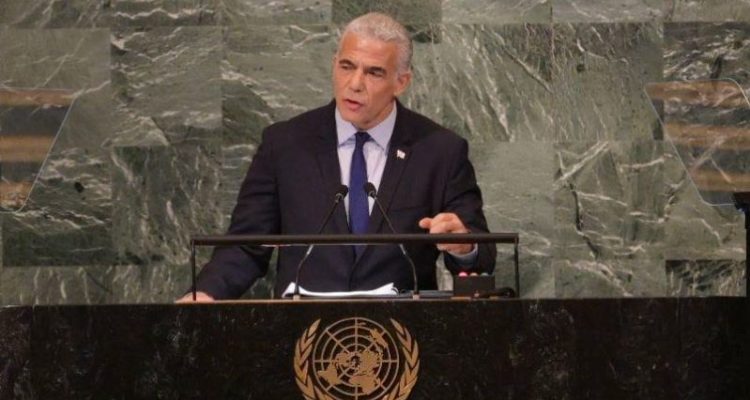By World Israel News Staff
The Israeli government ratified a maritime border deal with Lebanon that will enable Beirut to tap into a gas field located in part in waters claimed by Israel.
After the cabinet approved the agreement, Prime Minister Yair Lapid said war with Hezbollah will be “less likely.”
In a press conference Wednesday evening, Lapid said, “Israel is not afraid of Hezbollah. The IDF is stronger than any terrorist organization. At the same time, if we can avoid a war, it is the job of any responsible government to do so.”
“Instead of war, the agreement gives Israeli citizens billions and energy security for the coming years,” claimed Lapid.
On Wednesday morning, Lapid convened a meeting of the Security Cabinet to deliberate on the agreement, which cedes waters previously claimed by Israel to Lebanon, including part of the Qana offshore gas field.
“There is importance and urgency in reaching the maritime agreement between Israel and Lebanon, at this time. The members of the Security Cabinet express their support for the Government of Israel to advance the agreement,” Lapid said at the end of the meeting.
The Security Cabinet voted unanimously to back the final draft of the deal with Beirut.
Interior Minister Ayelet Shaked, chairwoman of the Jewish Home, abstained, while Alternate Prime Minister Naftali Bennett endorsed the deal, albeit while downplaying its importance.
“This is neither a time for a victory lap nor for lamenting, as if this were some kind of catastrophe,” Bennett said. “This agreement is not a historic diplomatic victory, but at the same time it is not a terrible defeat. This is a necessary arrangement, made obligatory by the situation we are in, with problematic timing.”
“Unfortunately, even this meeting on an important security issue for Israel, based on strategic needs, was carried out with political considerations mixed in, from all sides. As someone with no political interests, I learned the subject in depth and I made my decision responsibly.”
Ratification by the Knesset is not required, State Attorney General Gali Baharav-Miara ruled Tuesday, despite stating that given the upcoming elections on November 1st, a Knesset vote on the matter would be advisable.
Opposition Leader Benjamin Netanyahu has condemned the deal as an act of “historic surrender.” Others have insinuated that Lapid caved to U.S. pressure to agree to a deal that is unfavorable to Israel.
Anti-Israel sentiment is strong in Lebanon, and numerous public figures have expressed their rejection of a deal of any kind with the Jewish state.
Hassan Nasrallah, the head of the Hezbollah terror group, said that if “the president announces that Lebanon’s official position supports the agreement, then, for us… things are settled.”





